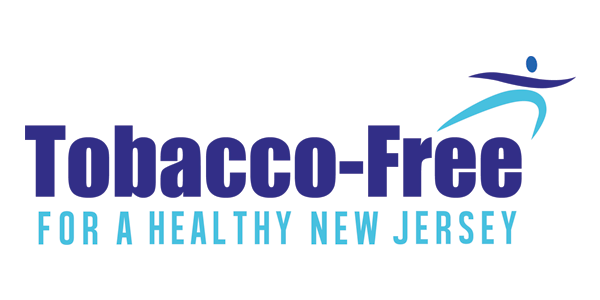NJ Survey Reveals Tobacco Usage Trends and Public Opinion on Smoking
- Tobacco-Free for a Healthy NJ

- Aug 2, 2023
- 3 min read
Cigarettes are the most used tobacco product among current tobacco users; over half of respondents support a NJ ban on menthol cigarettes

Tinton Falls, NJ (August 1, 2023) – Despite strong tobacco control laws in New Jersey that prevent smoking in a majority of public places, ban flavored tobacco product sales, and offer cessation services through insurance, residents continue using other tobacco products and underutilizing resources to aid in quitting.
A recent Rutgers-Eagleton Poll conducted by the Eagleton Center for Public Interest Polling, part of the Eagleton Institute of Politics at Rutgers University, on behalf of Tobacco-Free for a Healthy New Jersey (TFHNJ) sheds light on key aspects of tobacco usage, including most used products and resources used to quit, and opinions on cannabis smoking.
Fifty-three percent of New Jerseyans have never used a tobacco product; another 15 percent, on the other hand, currently use tobacco products, while 31 percent do not currently but have used them in the past. Cigarettes (62%) were the most used tobacco product among current users, with e-cigarettes or vapes next (34%), then cigars (25%) and hookah (10%).

"This survey of New Jerseyans offers crucial insights into tobacco usage trends, the usage of different cessation resources, and public attitudes towards cannabis smoking in New Jersey,” said Ashley Smith, TFHNJ Program Supervisor. “The findings will inform our efforts to promote tobacco-free lifestyles, implement effective smoking cessation programs, and advance evidence-based strategies related to tobacco control and public smoking in the state."
Among those who do not currently but have previously used tobacco products, only 17% reported using nicotine patches, gum, or lozenges to help quit, 7% reported using a cessation or quit smoking program, 6% reported using prescription medication, and a mere 1% reported use of a nicotine spray or inhaler.
While e-cigarettes are not an approved cessation product by the U.S. Food and Drug Administration, 8% reported using them to quit smoking.
The marketing and advertising of menthol cigarettes has been shown to disproportionately target Black communities, resulting in higher usage rates. While 55% of all respondents support a statewide ban on menthol cigarettes, Black respondents (64%) are more inclined to support a ban compared to white respondents (54%).
New Jersey’s Smoke-Free Air Act prohibits tobacco smoking in public places, while New Jersey’s Cannabis Regulatory, Enforcement Assistance, and Marketplace Modernization Act prohibits smoking cannabis products in any public place prohibited by the Smoke-Free Air Act.
When asked about allowing cannabis smoking in public places, most respondents opposed the idea of smoking in public places in general (70%) and at workplaces (92%), beaches (66%), college campuses (66%), and parks (65%).
Results are from a statewide poll of 1,002 adults contacted by live interviewers on landlines and cellphones from April 27 to May 5. The full sample has a margin of error of +/- 3.6 percentage points.
About Tobacco-Free for a Healthy New Jersey
Tobacco-Free for a Healthy New Jersey (TFHNJ) is New Jersey’s largest collaborative effort to reduce the health consequences of tobacco use — including vaping — and the harm from secondhand smoke exposure through prevention, education, and cessation in all 21 counties, including 11 Quit Centers. By collaborating with stakeholders, conducting research, and raising awareness, TFHNJ strives to improve public health outcomes and create a healthier, smoke-free future for all New Jersey residents.
ABOUT RUTGERS UNIVERSITY–NEW BRUNSWICK
Rutgers University–New Brunswick is where Rutgers, the State University of New Jersey, began more than 250 years ago. Ranked among the world’s top 60 universities, Rutgers’s flagship university is a leading public research institution and a member of the prestigious Association of American Universities. It is home to internationally acclaimed faculty and has 12 degree-granting schools and a Division I Athletics program. It is the Big Ten Conference’s most diverse university. Through its community of teachers, scholars, artists, scientists and healers, Rutgers is equipped as never before to transform lives.
ABOUT THE EAGLETON CENTER FOR PUBLIC INTEREST POLLING
Home of the Rutgers-Eagleton Poll, the Eagleton Center for Public Interest Polling (ECPIP) was established in 1971 and is the oldest and one of the most respected university-based statewide polling operations in the United States. Now in its 52nd year and with the publication of over 200 polls, ECPIP’s mission is to provide scientifically sound, nonpartisan information about public opinion. To read more about ECPIP and view all of our press releases, published research and data archive, please visit our website: eagletonpoll.rutgers.edu. You can also visit our Facebook and Twitter.
ABOUT THE EAGLETON INSTITUTE OF POLITICS
The Eagleton Center for Public Interest Polling is a unit of the Eagleton Institute of Politics at Rutgers University–New Brunswick. The Eagleton Institute studies how American politics and government work and change, analyzes how the democracy might improve and promotes political participation and civic engagement. The Institute explores state and national politics through research, education and public service, linking the study of politics with its day-to-day practice. To learn more about Eagleton programs and expertise, visit eagleton.rutgers.edu.



Comments